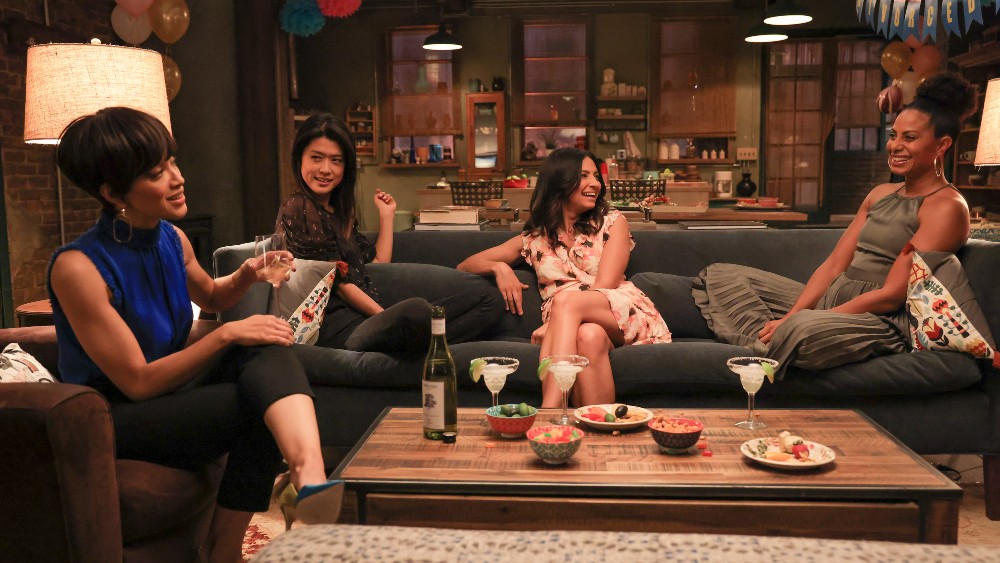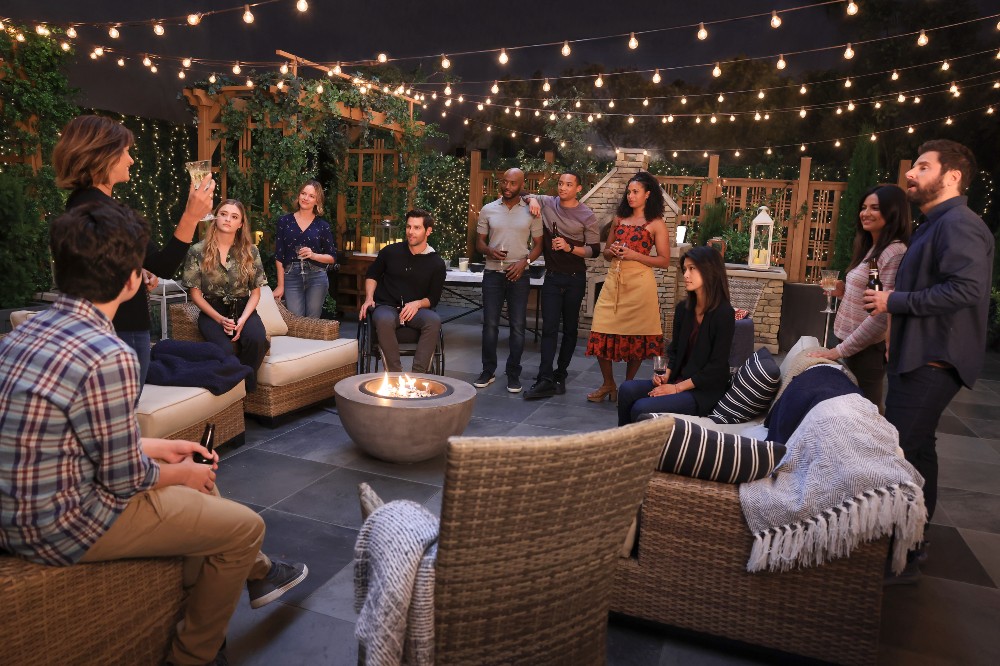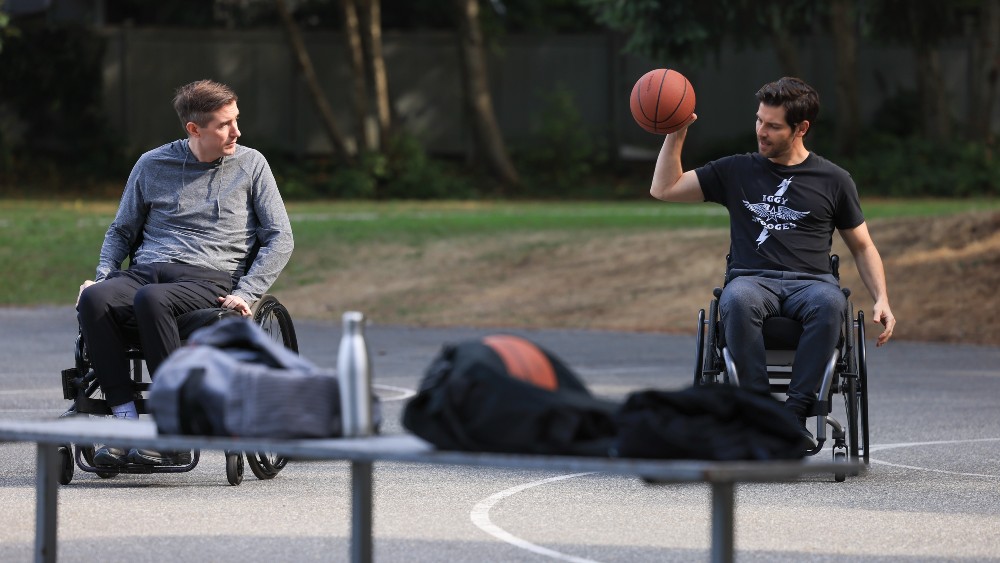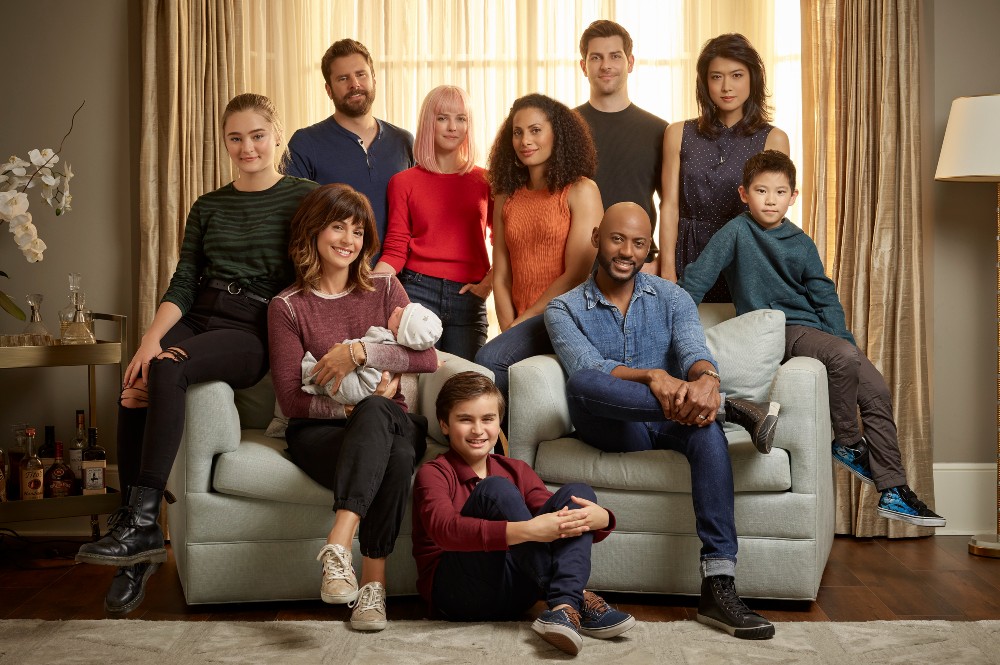
What makes the ABC episodic drama A Million Little Things, now in its fourth season, so addictive and relatable is that it centers on a group of friends who are more like family. The eight main characters, brought even closer together by one friend’s unfortunate demise, support and love each other unconditionally through thick and thin.
Each week, the stories deliver heart-rending moments of highs and lows which composer Gabriel Mann musically matches with notes and tones of darkness and light that subconsciously move us. There are times when he’ll sing phrases meticulously timed to the emotion or an entire song depending on how it fits into the warmth of the story.
Writing scores and theme music for dramatic television may come more naturally for Mann, but ironically he got his start in the world of comedy, making his mark with the theme song “Hey Hey” for Modern Family. He also wrote songs and scored Season Two of High School Musical, and The Unicorn, as well as Rebel, and was the resident songwriter for Arrested Development. His musical journey of writing songs for his own solo projects, having a label deal with a successful band The Rescues, and opening for pop stars like Alanis Morissette on a European tour, circuitously led him back to scoring for television.
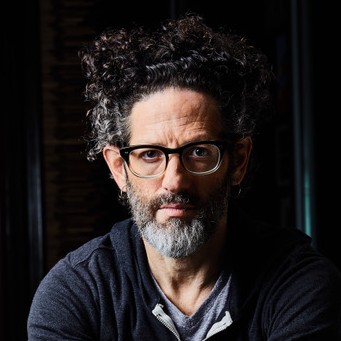
Below The Line spoke with Mann from his home studio in Los Angeles, and he spoke about how he got the long-standing gig with A Million Little Things. He also talks about the non-traditional way he entered into the world of making music for television and what’s involved in composing for a weekly series. There are a million little things (pun intended) that Mann had to accomplish to achieve his composing technique, but knowing his music has made an emotional dent is what satisfies him.
Below The Line: You have been with the series since the beginning. How did you first get the gig?
Gabriel Mann: First of all, I had worked with ABC a significant amount, so from that regard I know their music department well and they know me well. I didn’t know [Creator] D.J. [Nash] but I had met him one time because he had a previous show that I was talking about possibly doing, Growing Up Fisher. I didn’t end up doing it, but I met him again for this pilot, partially because the director was James Griffiths and I had come in at the last minute on episode three of The Mayor and solved some music problems for them. He asked me if I had anything for this show. I put a reel together of material that made sense after having read the script as an idea of what the sound could be, which were more emotional and beautiful. I like to call this music beautiful darkness. I made a presentation of it in order of what happens in the script so as you were listening to it, you could picture the music very clearly.
BTL: How did you click with D.J.?
Mann: D.J. is very music-centric. He relies on it in a way that is a pleasure for someone like me making stuff. It was a very high priority for him to find the right composer who knew their way around songs. I used to be a music producer before I was even a composer. I was in a band and I sing, so to me that’s where I feel I’m offering something a little different then just [as] a composer. It’s something that I thrive on. I’m very melodic in my composing. Doing a song for a soundtrack is all part of that.
BTL: How much changed in terms of your initial audition so to speak after you saw the pilot?
Mann: I didn’t actually start writing anything before I saw it. As soon as I saw it, I started filling it up with stuff. I basically made a template of sounds that I would draw from that would make sense and be useful. Before D.J. had seen it I asked them to give me editor’s cuts, the scenes in order, without having a ton of work done to them yet. A lot of that first pass became the foundation of what we did. The pilot has so much going on it that the challenge was to create a sonic identity through the whole show, but also making sure the momentum stays and getting the right feeling at every moment. That became the blueprint for later episodes. The other major thing that happened in the pilot was this song that opens the show. We didn’t know what song until the very last minute.
BTL: What song did you wind up using?
Mann: Ultimately, I made a cover of The Killers song “All These Things That I’ve Done” that became part-song and part-score that weaves throughout the whole opening of the first five minutes of the show. It didn’t really make sense to use the original because it has one feeling and we needed to have a million different feelings. It had to go up and down and fast and slow. I did this long involved version and then we had a guy singing it, but then we went back to my demo which was me singing. That became a thing that we do relatively frequently where I get to sing songs on the show, which is fun and a joy.
BTL: Tell me more about your solo work and being in bands.
Mann: I kind of went zigzag in my own musical journey. First of all, I was pre-med so I was gonna be a doctor. I didn’t know anything about making a living. I’m from Texas and there was no entertainment business of any kind, so someone suggested this USC film scoring program and I went to that. I was working with people who were making music for TV and film as an intern and an assistant. At some point, I got really disillusioned about it. I started writing songs and got really into that. I didn’t think that writing music under stupid TV shows was something that I wanted to do for the rest of my life! I was young and didn’t have a lot of needs at that point. [laughs] I had a lot of dreams and thought, “Well I’ll just be a rock star, how hard can that be?” So I made five albums from 2000-2007 and I was touring and recording bands and trying to cobble a living completely outside of film and TV. I was more focused on writing for me and getting out what I felt I had to get out. Then I had come back from a big European tour opening for Alanis Morissette figuring the Red Sea would part, and I would be showered with praise and ticker tape parade, and that didn’t really happen.
BTL: So how did you transition from that into composing for film and TV?
Mann: One of the guys that I worked with, David Schwartz, asked me if I wanted to write some songs for this TV show he was working on. That was Arrested Development. That was how I came back to TV. My wife had just had a baby and nothing was happening with my solo career. David was basically my mentor, because we would write songs and often I would get to sing them — if you watch, you’ll hear me singing these wacky songs. It was a really easy and warm environment with which to re-enter that world. So I started working with David on other shows and that led to Modern Family and we’re off to the races. That was in 2009 and basically, since then, it’s been a little more of a path that I could sort of see.
BTL: Coming full circle, how would you describe the signature sound of A Million Little Things, and what instruments you used to achieve that?
Mann: It’s basically guitar and piano based. The piano is very dull sounding; it’s not like a beautiful, bright piano. It’s like a dark and “felty” piano that sort of dulls the sound. It becomes extremely intimate and very emotional. It’s less like playing the piano and more like an orchestral instrument. I sort of treat the guitars the same way. I use acoustic and electric but I don’t play. My friend Steve Mazur, who I’ve known forever and who was in my solo band in 1999 and now a guitar player for Our Lady Peace, is my guy. He just knows what I’m looking for, and his sense of guitar is similar to my sense of piano. That came from the original demo for the show, which was centered around piano and guitar. It’s organic instrumentation, real sounding, and non-orchestral. There are strings that I use occasionally, but they’re played in a studio indie kind of way. There are some synthetic things I use to give you the sweeping zings and moments where things go boom. But the core of it is piano and guitar.
BTL: What part do vocals play in the score?
Mann: That happens pretty rarely but maybe once every couple of episodes if there’s something very critical going on in the score, I will put some vocals on it. Not words, just like ‘oohs’ and ‘ahs.’ Then in every three or five episodes there’s like a big song and we do that. Occasionally I have my daughter sing on the show. She sang “Blackbird” in the final scene of the season finale last year. She’s got this beautiful crystal clear voice so that was a real treat.
BTL: You made your mark with playful music of Modern Family and now you are creating music for these dramatic emotional shows. Was that an intentional shift for you?
Mann: It wasn’t part of my plan that Modern Family would be a career-defining moment. I’m extremely thankful that it was and it was super fun to work on and involved a lot of different kinds of music that I also love making. Part of the joy of being a TV film composer is that you get to do everything. It is funny that you become pigeonholed by your first big hit. It was wonderful doing comedies for many years but I realized I was known for doing something over here but what comes out my fingers naturally is much closer to what’s happening on A Million Little Things. The songs that I wrote on my solo records you can hear in this score. What comes out of me naturally is more emotional and character-driven beautifully dark pieces of music.
BTL: How does that personally affect you writing such dark music?
Mann: It can be very hard to stay in the dark. Thankfully with this show, there are always moments of levity. I dig into those moments just as hard as I dig into the darker side. I have a pretty normal and balanced life with my wife and kids. There’s a ton going on in our house. When I’m done working for the day that’s what’s really going on. I don’t generally bring work home with me.
BTL: I was watching a recent episode, and you don’t even realize how the music is evoking so much emotion.
Mann: That is hopefully by design. The goal of the music in a show like this is not to announce itself. I used to think it’s so crazy that all this stuff is happening to these people. But over the last three years, there has been so much crazy heavy stuff that has happened in the lives of our friends and people that we love. You realize that everybody has got this much going on. That is why the show does so well in connecting with people. In the more serious moments of the show, there’s so much to tap into from my own experience and the experiences of my friends. I can directly connect to almost every single thing that is going on in this show every week. I love that people are watching the show and connecting to it. The goal is to make you feel things subconsciously or bring more out of moments, and possibly tell you what’s going on that you’re not hearing in the dialogue. Occasionally, you do get to notice it, which is wonderful. The whole point of music is we want you to feel something.
All photos courtesy ABC, photographer: Jack Rowand, exept where noted.

